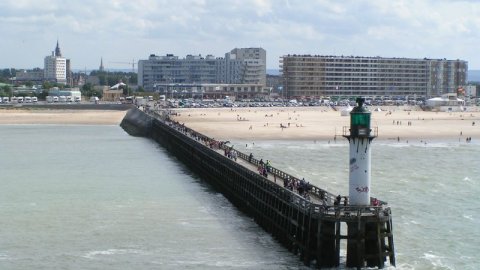An Afghan Village on the English Channel

In some erudite, parallel-universe version of our world, no earthlings ever form opinions about America’s next invasion or diplomatic overture without scrutinizing their atlases, poring over press accounts in seven languages, and re-familiarizing themselves with the passages they underlined in their dog-eared volumes of Thucydides, Talleyrand, Kennan, Kissinger, Clausewitz, and Sun Tzu. But in our own world, opinions get shaped by messy local events such as France’s decision to bulldoze a makeshift refugee camp last Tuesday.
French police razed the encampment and arrested nearly 300 “undocumented migrants” — most of them from Afghanistan and many of them not yet adults.
These migrants don’t even want to be in France. They are in Calais to try and fail and try again, as often as might be necessary, to sneak across the English Channel.
One British newspaper quoted a 26-year-old man from Kandahar: “Every night I try to get to Britain. It’s dangerous — of course it’s dangerous — but I’m never going to stop trying …”
NPR summed up Britain’s hold on the migrants:
“Some already speak a little English. Many have family or friends there in large Pashtun communities and nearly all believe there are better asylum and job prospects in Britain.”
One British commentator complained:
“A migrant camp is demolished in Calais and guess what? Yes, we are expected to wrestle with remorse. If you show concern over the number of asylum seekers in Britain, you are ‘anti-poor’.”
The UNHCR’s representative to the United Kingdom countered that of the “42 million uprooted people in the world last year, only some 0.7 per cent entered Europe and 0.074 per cent reached the UK. The UK is not in danger of being ‘swamped’ by asylum claimants …”
The hundreds of Calais migrants vex France and Britain. But George Rupp, president and CEO of the International Rescue Committee, can put those hundreds in context. Speaking with Big Think in April, Rupp said as many as 8 million Afghans were refugees when troubles peaked.




